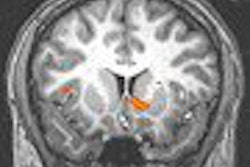Radiologists who oppose the American College of Radiology’s plan to offer accreditation to extremity-only MRI facilities have won at least a temporary victory against the plan, which they believe will enhance self-referring orthopedists at the expense of radiologists.
ACR board chairman Dr. E. Stephen Amis Jr. recently announced that this month’s scheduled launch of the Ortho MRI accreditation module would be delayed until at least May, when it will come before the ACR Council at the college’s annual meeting May 8-13 in Washington, DC.
"I have delayed the rollout of the Ortho MRI module until the Council can debate the merits of the program and vote either to approve it or shelve it," Amis wrote in an "urgent" e-mail sent out earlier this month to ACR E-News subscribers.
New accreditation programs generally require approval from the 300-member Council. However, the extremity MRI module was considered to be only an adjunct to the existing MRI accreditation program, Amis wrote.
The module proposal was studied and unanimously endorsed by a specially appointed task force, and then approved by the 27-member ACR Board of Chancellors in January, Amis noted.
The year-long task force gave its approval after reviewing a business plan for the module, applicable laws, and comments from state chapters, equipment manufacturers, insurance-carrier advisors, and member surveys, according to a report posted on the ACR’s Web site.
"Overall, acknowledging that there are risks and that some members will initially be alienated, the potential benefits outweigh the potential risks," wrote Dr. Jeffrey Weinreb, chairman of the Orthopedic MRI Accreditation Module Workgroup.
The ACR Council will consider at least two resolutions opposing the module at the May annual meeting and chapter leadership conference.
One resolution, sponsored by the Radiological Society of Connecticut, asks that the ACR eschew any accreditation of extremity MRI units. Such units are "overwhelmingly used in self-referral circumstances by non-radiologists" and "would not qualify for accreditation under existing ACR guidelines and programs," the resolution states.
A second resolution, sponsored by the District of Columbia Metropolitan Radiological Society, asks that an accreditation module be delayed until the ACR conducts research on the self-referral patterns associated with extremity MRI scanners.
Accreditation opponents such as Dr. Ian Peterkin, current president of the DC society, argue the accreditation plan would give the ACR’s sanction to orthopedists who install small extremity-only scanners in their offices and then self-refer for MR imaging.
"Many members of my chapter have noticed a serious drop in their orthopedic referrals due to this new onslaught of extremity-only MRI machines that orthopedic surgeons across this city, and throughout the country, are now rapidly purchasing," wrote Peterkin in a recent e-mail to other ACR chapter leaders.
"By providing an accreditation program specifically for these extremity units, the ACR would directly impede the efforts that many chapters have undertaken with insurers -- to show how these self-referred MRIs are not only of potentially inferior quality but will also cause a dramatic spike in utilization," Peterkin continued.
Neither Peterkin nor Amis were available at press time for further comment on the program.
The probable link between MRI self-referral and increased imaging was bolstered in a recent article in The New York Times, which reported that the number of MRI machines around Syracuse, NY, has grown by one-third in the last three years.
Meanwhile, the number of MRI exams performed in the Syracuse area increased 23% in just a 12-month period ending last June, according to data supplied by National Imaging Associates, a utilization management consultancy based in Hackensack, NJ.
The article noted that physician offices are exempt from New York’s certificate-of-need (CON) law, which requires hospitals and licensed centers to receive state approval before adding imaging equipment.
Federal regulations also bar doctors from referring patients to centers or labs in which they have a financial interest. However, doctors are allowed to bill for exams conducted on office equipment that they own and operate.
One exception may be in Maryland, where the state’s attorney general has ruled that "orthopedist-owned MRIs and their inherent self-referral contravene state law," according to Peterkin.
But if the ACR refused to accredit orthopedist-owned scanners, it might run afoul of federal and state antitrust laws, Weinreb suggested in his task-force report.
"(T)he workgroup has determined that much of the resistance to this module is based on the mistaken impression that the ACR should only accredit radiologists and radiology-owned facilities," he wrote.
In the e-mail announcing the delayed implementation, Amis noted that the extremity MRI accreditation had emerged as a "potentially divisive issue" for organized radiology.
"(I)n soliciting support for (the anti-accreditation) resolutions, some are painting this issue as a conflict between the board and the membership," Amis wrote. "That is simply not the case, and the college will not be well served by fomenting distrust among groups that all have our members’ best interests as their goal."
"While I personally support the module," Amis concluded, "both the board and I will respect and carry out the decision of the council."
By Tracie L. ThompsonAuntMinnie.com staff writer
March 23, 2004
Related Reading
Non-radiologists outpace radiologists in skyrocketing use of ultrasound, December 1, 2003
Turf Wars in Radiology, Part V: Radiologists, orthopedists put best foot forward, October 1, 2002
Medicare database shows radiologists losing turf, December 27, 2001
Rise in MR use traced to technology, applications, December 26, 2001
Copyright © 2004 AuntMinnie.com




















